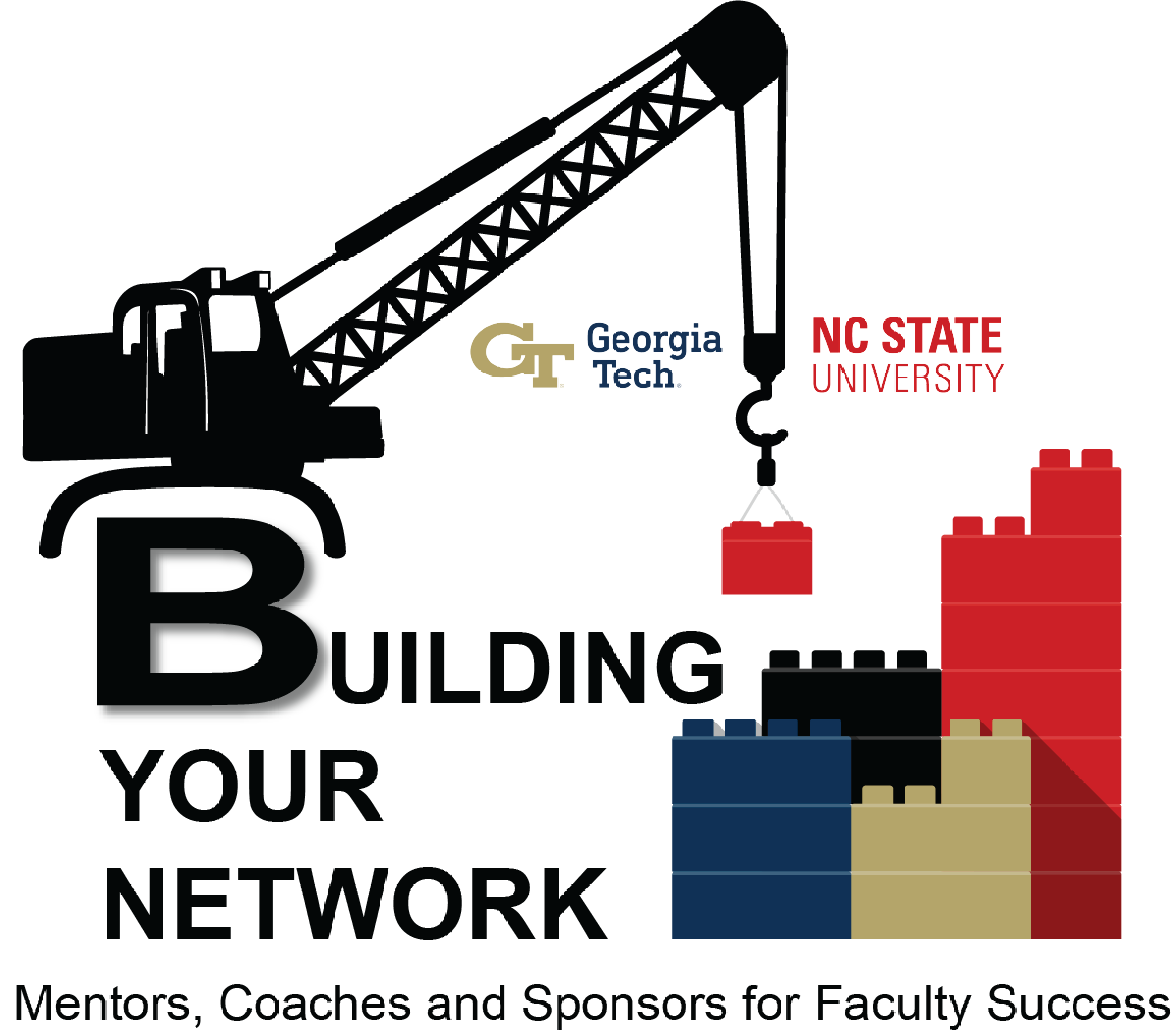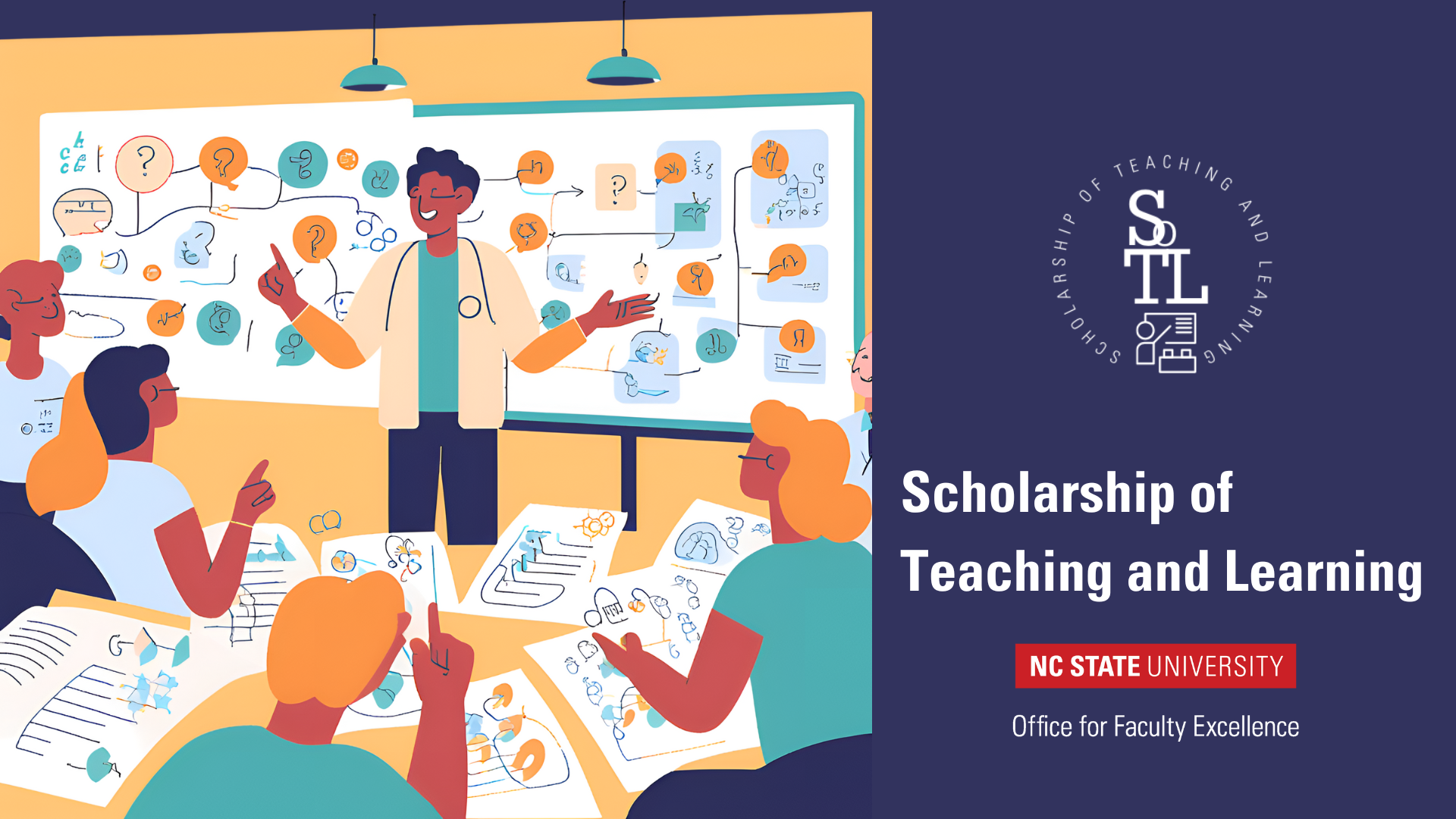By Kim Grainger, Senior Vice Provost for Faculty Excellence
Sue Carson, Faculty Fellow
Diane Chapman, Executive Director and Associate Vice Provost for Faculty Development
Maria Gallardo-Williams, Associate Director of Faculty Development
Carlos Goller, Faculty Fellow
Melvin (Jai) Jackson, Assistant Vice Provost for Faculty Engagement
Catherine Mainland, Faculty Fellow
Kyle Miskell, Director of External Awards
Dan Monek, Provost Faculty Fellow
Laura Nelson, Associate Vice Provost for Academic Personnel and Policy
Jennifer Yowell, Instructional Designer
Welcome to NC State! Starting a new chapter as a faculty member is both exciting and challenging, and we’re here to ensure your journey begins on the right foot. The Office for Faculty Excellence (OFE) is dedicated to supporting you in your new role, and what better way to do that than by sharing some heartfelt advice from those who know the ins and outs of our community best?
In the spirit of collegiality and shared wisdom, we’ve gathered insights from our experienced staff and faculty fellows, many of whom have walked in your shoes as faculty members themselves. Whether you’re curious about fostering student engagement, balancing research and teaching, or simply finding the best coffee on campus, we’ve got you covered. Think of this blog post as your personal welcome committee, offering tips and encouragement to help you thrive.
And remember, our door is always open. If you ever need more personalized advice or support, you can easily request a consultation by submitting a consultation form. We’re here to help you every step of the way.
Campus Resources:
- NC State offers many resources to support your teaching, research, and service. Take advantage of the Office for Faculty Excellence, DELTA (Digital Education and Learning Technology Applications), and the Libraries. These resources can help you enhance your teaching strategies, integrate technology effectively, and support your research. Melvin (Jai) Jackson
- Do not hesitate to ask: NC State has a wealth of resources and the OFE, DELTA, and NC State Libraries have incredible staff that will help you find the information or contact that will save you time! Learning about faculty resources early will save you time and help you develop a workflow. Carlos Goller
- Take development courses from the OFE, Delta and the libraries on how to enhance your teaching and how to use the NC State softwares, and resources. Being familiar with modern teaching strategies and software will allow you to not only be more successful in your teaching, but also more efficient. Diane Chapman
- Engaging with OFE early on can provide you with the tools and network necessary to thrive in your new environment.
- Teaching activities: Attend workshops on pedagogy, active learning, and inclusive teaching offered by our university’s teaching and learning center, such as the OFE at NC State. Engage in peer observation programs where you can observe experienced colleagues and receive feedback on your own teaching methods. Regularly seek and analyze feedback from your students to identify areas for improvement and adapt your teaching strategies accordingly.
- Research Opportunities: Reach out to colleagues across departments to explore interdisciplinary research projects that can open up new avenues for funding and publication. Take advantage of grant writing workshops and resources offered by the university (e.g., Proposal Development Unit, PDU) to improve your ability to secure research funding Seek out a research mentor, either within your department or through formal mentorship programs, to guide you in navigating research challenges and advancing your scholarly work. Sujit Ghosh
- Like most institutions, NC State is a complex organization with unique terminology, processes, and structures. Some of these will feel intuitive and logical…and honestly some won’t. As a new faculty member it can be easy to miss valuable resources because we don’t know where to find them or find ourselves stressed or doing more than is necessary for ourselves and our students because a system that impacts us doesn’t yet make sense. Allow yourself the time and grace to learn how our processes work and how they impact you. Ask questions and when you see something that could be better don’t hesitate to make suggestions for change. Seek out mentors from all across campus to help you navigate and discover all that our university has to offer. And most importantly, as you work hard to continue your career, allow time to embrace all of who you are as a person. As we make efforts to encourage our students to be well-rounded and to care for their mental and physical health, so should we. So sing, run, dance, paint, hike, travel, spend time with family – whatever it is makes you you. You have landed at a terrific place to work and grow – welcome to NC State. Dan Monek
Mentorship, Networking, and Career Planning::
- Review your college and departmental RPT and Professional Track faculty rules so that you will know what is required of you for promotion. Kim Grainger
- Identify mentors within and outside your department who can offer guidance on teaching, research, service, and career development. Mentorship is invaluable for navigating the challenges of academia. Also, connect with colleagues within your department and across the university. Building a strong professional network can provide support, collaboration opportunities, and mentorship. Attend university events, join faculty groups, and consider participating in interdisciplinary initiatives.Melvin (Jai) Jackson
- Learn about your departmental/program mentoring structures. Also, sign up for Mentor the Pack to find mentors beyond your department. Finding a mentor (or a buddy) in a different department or program will broaden your perspective and understanding. Carlos Goller
- You have valuable skills and knowledge that can be of value to others. It is never too soon to start mentoring others. Maria Gallardo-Williams
- Start your RPT dossier your first year and ask the senior faculty in your department to provide feedback. Update it every year and ask for feedback. You will have no surprises when it comes time for promotion. Sue Carson
- Participate in the culture of honorific award recognition on campus: 1) Identify aspirational peers and see how they navigated awards over their career. 2) Identify awards you might want to apply to and make a calendar (start three months in advance). 3) Nominate colleagues for awards. 4) Serve on award committees. 4) Get involved in your professional organizations (and maintain your memberships!). Kyle Miskell
Effective Teaching Strategies:
- While many educators concentrate on their presence and lecture when teaching, which are indeed crucial, it’s equally important to pay attention to the structure of the course. This includes thoughtfully designing assignments, activities, and ensuring relevance. Organize your course effectively! And don’t hesitate to seek assistance; NC State University offers excellent resources to help you. Seek guidance from experienced educators by finding a mentor who has valuable insights into both teaching and navigating academic life. Learning from the best can significantly enhance your own journey. Jennifer Yowell
- When you receive your first student evaluations, don’t spend 99% of your time ruminating about the 1% of students who thought you were terrible. Sue Carson
- Make sure you pin down exactly what your courses are meant to do; don’t assume you have to cover everything! Catherine Mainland
- Always respond to students with the assumption that they want to and are capable of learning. Sue Carson
Research and Scholarship:
- Write down your goals at least for the next year and set the major milestones needed to get there. This will allow you to monitor your progress and remove some of the anxiety from feeling behind. Diane Chapman
- Go slow to go fast—it’s worth learning how to run a lab, organize a course, give feedback, use Moodle, access library resources, etc. earlier in the game, as these skills will make you more effective in the long run than winging it. Lots of people who seem to be effortlessly good at what they do got that way because they took the time to learn these kinds of things. Laura Nelson
- Consider the Scholarship of Teaching and Learning as a valuable part of your research portfolio. We offer a SoTL Institute every year at OFE and we are also available for individual consultations. Maria Gallardo-Williams
Work-Life Balance and Personal Well-being:
- Be kind to yourself and to those around you. You and everyone around you are human beings who are trying their best. Laura Nelson
- Say ‘yes’ to the work that will bring you fulfillment. That way when there is something you don’t want to do, your time will be spoken for. Sue Carson
- Remember to call it a Life/Work Balance, not the other way around. Catherine Mainland
- Take time for yourself and your well-being. You cannot be there for your students if you are not taking care of yourself. Diane Chapman
- Academia can be demanding, so it’s crucial to establish a healthy work-life balance early on. Make time for self-care, family, and personal interests. NC State offers various wellness programs and resources to support your overall well-being. Melvin (Jai) Jackson
We’re excited to have you with us, and we can’t wait to see the incredible contributions you’ll make to our vibrant academic community.
- Categories:



